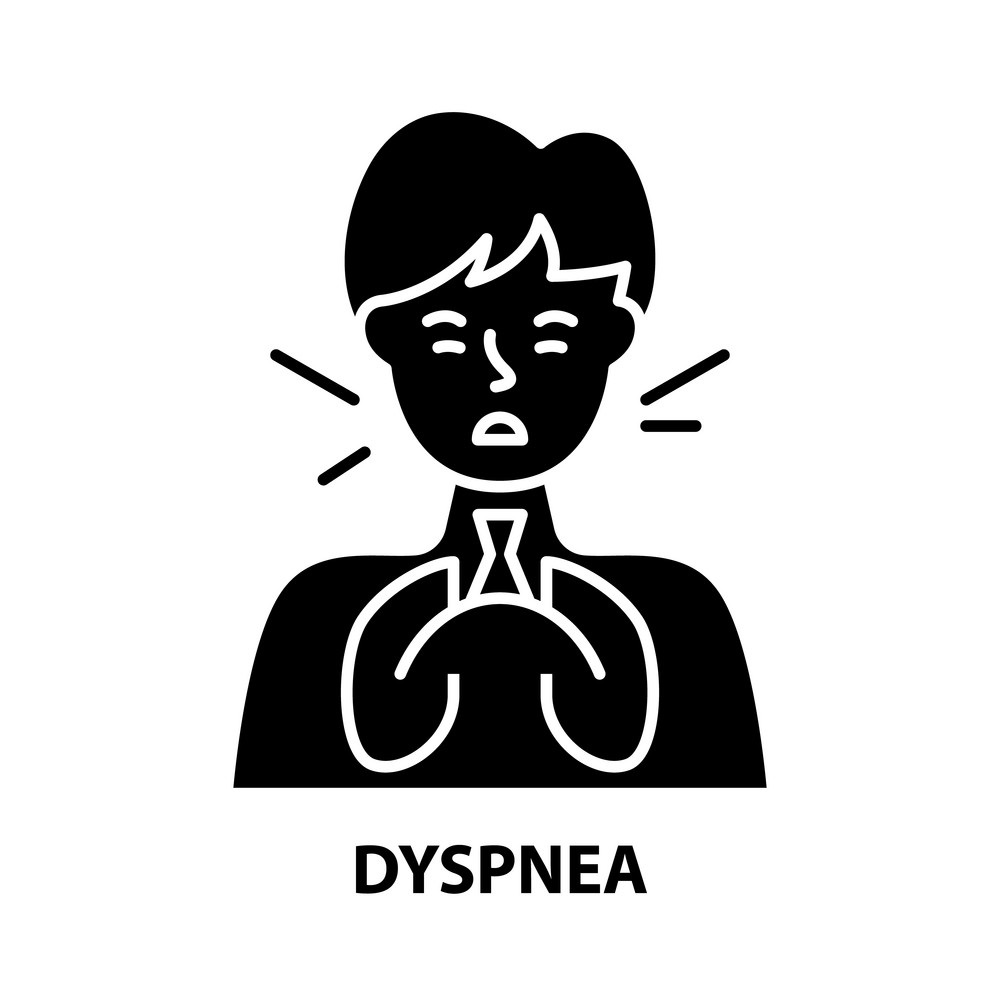Shortness of Breath (Dyspnea)
Overview | Possible Causes | Care and Treatment | HOME REMEDies | When to Call the Doctor | References

Overview
Shortness of breath- known medically as dyspnea- is often described as an intense tightening in the chest, air hunger, difficulty breathing, breathlessness or a feeling of suffocation.
Very strenuous exercise, extreme temperatures, obesity and higher altitude all can cause shortness of breath in a healthy person. Outside of these examples, shortness of breath is likely a sign of a medical problem.
If you have unexplained shortness of breath, especially if it comes on suddenly and is severe, see your doctor as soon as possible.
Possible Causes
What causes shortness of breath?
Many different medical disorders can cause shortness of breath. The most common causes are lung and heart conditions. Healthy breathing depends on these organs to transport oxygen to your body.
Feeling breathless may be acute, lasting just a few days or less. Other times, it is chronic, lasting longer than three to six months.
What causes ongoing shortness of breath?
Conditions that may cause chronic shortness of breath include:
- Asthma: Narrowing of the airways caused by asthma can make it feel difficult to breathe.
- Heart failure: During heart failure, blood can’t fill and empty the heart properly. This condition may cause fluid to accumulate in your lungs, making it feel difficult to breathe.
- Lung disease: Damage to lung tissue from diseases such as tobacco smoking-related chronic obstructive pulmonary disease (COPD) can cause dyspnea. Tumors, such as lung cancer, can also cause shortness of breath.
- Obesity: Being very overweight can strain your lungs and make it difficult to breathe.
- Poor fitness: Being out of shape from inactivity or illness can cause breathlessness.
What causes acute dyspnea or shortness of breath?
Factors that may cause acute (goes away after a week or so) shortness of breath include:
- Allergies: People often feel short of breath during an allergic reaction.
- Anxiety: Anxiety can cause hyperventilation (rapid, heavy breathing).
- Choking: A blockage in your throat can make it difficult for air to move in and out of your lungs. Inhaling food or an object into your lungs also blocks airflow.
- Pulmonary embolism: This happens when you have a blood clot in your lungs. This condition is a medical emergency.
- Heart attack: A blockage that stops blood flow to the heart can cause frightening breathlessness. If you notice this symptom along with other heart attack symptoms, call 112.
- Infection: An infection like bronchitis or pneumonia may produce mucous that blocks airflow to parts of the lungs. This can interfere with oxygen diffusion to the blood.
- Injury: A broken rib can make breathing painful and difficult. Bleeding and anemia can lower the number of red blood cells, which lessens the amount of oxygen carried in the blood.
- Medication: Certain medicines can cause a tight feeling in the chest. Statins (medicines that reduce fats in the blood) and beta blockers given for hypertension in asthmatic individuals may cause this symptom.
- Extreme temperatures. Being very hot or very cold can make you feel like you are having trouble breathing.
Care & Treatment
Your doctor will help you manage dyspnea by first identifying and then treating the condition causing your breathing trouble. Depending on the underlying condition, your treatment may include:
- Exercise: Improving your physical fitness can strengthen your heart and lungs. Better overall health can help you feel less winded during activity. Even with a heart or lung condition, cardiovascular rehabilitation might help. The provider might also suggest that you learn breathing techniques.
- Medication: Inhaled drugs called bronchodilators can relax your airways in asthma and in COPD. Medication to relieve pain or anxiety can ease breathlessness.
- Oxygen therapy: Receiving extra oxygen through a mask or tube in the nostrils can help you breathe more comfortably. This is only appropriate when the blood oxygen level is measured by a healthcare professional and shown to be low.
Home Remedies
You may prevent or relieve shortness of breath on your own. Helpful steps may include:
- Avoiding inhaling chemicals that can irritate your lungs, like paint fumes and car exhaust.
- Practicing breathing and/or relaxation techniques to improve your breathing function.
- Stopping smoking, if you smoke. Don’t start smoking if you don’t now smoke.
- Reaching and maintaining a healthy weight.
- Avoiding activity in times when temperatures are very hot or very cold, or when the humidity is high. If you have lung disease, observe air pollution (ozone) alerts issued on radio and TV.
- Making sure your equipment is in good working order when you use oxygen.
When to Call the Doctor
If you have a condition that means you might be feeling short of breath often, make sure to follow the suggestions of your healthcare provider about paying attention to your health every day. This might include doing peak flow testing in COPD and asthma or weighing yourself every day to make sure you are not retaining water.
Call your doctor if you have severe shortness of breath, or if your breathlessness interferes with your everyday activities. Sometimes, shortness of breath is a sign of a medical emergency that requires immediate treatment. Go to the hospital if you still have difficulty breathing after resting for 30 minutes. Also get emergency help right away if you have:
- Blue fingers or lips.
- Chest pain or heaviness, particularly if associated with sweating and nausea.
- Heart palpitations (fast or irregular heartbeat).
- High fever.
- Stridor (high-pitched sound when inhaling) or wheezing (whistling sound) when breathing in or out.
- Swollen ankles or feet.
To book online consultation to meet our expert doctor click on the link below
Reference
- https://www.mayoclinic.org/symptoms/shortness-of-breath/basics/
- https://my.clevelandclinic.org/health/symptoms/16942-shortness-of-breath-dyspnea
- https://www.ncbi.nlm.nih.gov/books/NBK499965/





































































































